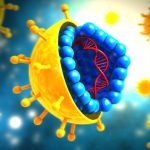According to the Government of India statistics, cardiovascular disorders account for one-third of elderly mortality. Respiratory disorders account for 10% mortality while infections including TB account for another 10%. Neoplasm accounts for 6% and accidents, poisoning and violence constitute less than 4% of elderly mortality with more or less similar rates for nutritional, metabolic, gastrointestinal (GI) and genitourinary infections. Instead of pyrexia and leukocytosis, the acute infections in the elderly may present in an atypical way with impaired intellect/memory, incontinence, instability or immobility. Malnutrition, occult hypothyroidism, renal failure, depression and sexual problems are also common in the elderly.
The health issues in the elderly are several and it is beyond the scope of this chapter to cover all the issues.
Following are the important health issues, which are frequently encountered:
- Frailty
- Anorexia/Malnutrition/Weight Loss
- Gait Disorders/Falls
- Osteoporosis
- Urinary Incontinence
- Decubitus Ulcers
- Sleep Disorder
- Delirium
- Cognition Impairment (Dementia)
- Heat Strokes
- Gastroenteritis
Necessary Screenings
- Osteoporosis: Bone mineral density (BMD) at least once after the age of 65 years, once in every 2–3 years.
- Hypertension: Blood pressure at least once a year, more often in patients with hypertension.
- Diabetes: Serum glucose and haemoglobin A1C every 3 years, more often in patients who are obese or hypertensive.
- Lipid disorders: Lipid profile every 5 years, more often in patients who are diabetics or any cardiovascular disease.
- Colorectal cancer: Stool occult blood test, sigmoidoscopy or colonoscopy, regularly up to the age of 75 years.
- Breast cancer: Mammography every 2 years between ages 50 and 74 years.
- Cervical cancer: Pap smear every 3 years up to the age of 65 years.
How to Prevent?
Vaccinations: Influenza Vaccination and Pneumococcal Immunization once at the age of 65 years annually.
Myocardial infarction: Daily aspirin in patients with a prior history or with cardiovascular risks factors.
Osteoporosis: Calcium 1,200 mg daily and vitamin D at least 800 IU daily.
Exercise: In older adults, increased physical activity improves physical function, muscle strength, mood, sleep and metabolic risk profile. Regular, moderate-intensity supervised exercise can reduce the rate of age-associated decline in physical function. 150 minutes/week of moderate-intensity aerobic activity such as brisk walking and muscle-strengthening exercise involving all major muscle groups on two or more days in a week is recommended for the elderly.
Nutrition: Basic principles of a healthy diet are also valid for older people, namely:
- Consumption of fruits, vegetables, whole grains
- Good hydration, at least 1,000 ml of fluids/day
- Fat-free and low-fat free dairy products, legumes, poultry
- Fish at least once a week





